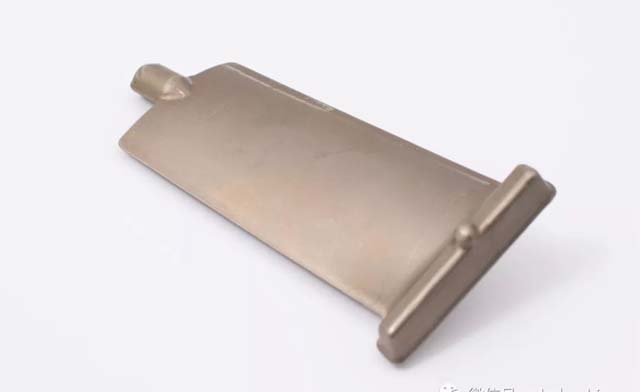- Contact Innally, Let you purchase forgings in China more favorable prices, products more assured!
- Hotline:+(86)15038323776 Email:innally@innally.com
Advantages of titanium alloy blade forging: Superior properties over other materials
- Category: Thermal forging, Titanium alloy forging
- |
- Date: 02/01/2024
titanium alloy blade forgings have become an excellent choice in the aviation industry because of their excellent high temperature resistance, light weight and high strength and mature manufacturing processes.
Product Details
In the aviation industry, the performance of the engine is of Paramount importance. As a key component of the engine, the material selection and manufacturing process of the blade have a great impact on the performance of the engine. In this regard, titanium alloy blade forgings, with their unique advantages, have become an excellent choice over other materials.
First of all, titanium alloy blade forging has excellent high temperature resistance. During the operation of an aeroengine, the blades need to withstand extremely high temperatures and pressures. Compared with traditional nickel-based alloys, titanium alloys have a higher melting point and creep resistance, which can maintain stable performance in high temperature environments to ensure the normal operation of the engine. This allows titanium alloy blade forgings to have a longer service life and higher reliability in high temperature environments.

Secondly, titanium alloy blade forging has the characteristics of light weight and high strength. In aviation, weight is a crucial factor. The density of titanium alloy is low, but the strength is high, which can effectively reduce the weight of the engine, thereby improving the fuel economy and flight performance of the aircraft. In addition, the rigidity and fatigue resistance of titanium alloy blade forgings are also very good, and they can maintain stable performance under various complex stress conditions.
In addition to the advantages of the above physical characteristics, titanium alloy blade forging also has significant advantages in terms of manufacturing process. Titanium alloys have good plasticity and machining properties, making the forging and machining process relatively easy to control. In addition, the heat treatment and surface treatment process of titanium alloy blade forging is relatively mature, which can further improve the performance and quality of the blade.
Compared with other materials, the application of titanium alloy blade forgings in the field of aeroengine has obvious advantages. For example, traditional materials such as aluminum alloy and steel are prone to oxidation and corrosion in high temperatures and complex environments, while titanium alloy has better corrosion resistance and oxidation resistance, which can significantly improve the service life and reliability of the engine. In addition, the production efficiency of titanium alloy blade forging is high and the cost is relatively low, which is also conducive to reducing the manufacturing cost and maintenance cost of aircraft.
In summary, titanium alloy blade forgings have become an excellent choice in the aviation industry because of their excellent high temperature resistance, light weight and high strength and mature manufacturing processes. It not only improves aircraft performance and reliability, but also reduces manufacturing and maintenance costs. With the continuous development of aviation technology and the continuous improvement of engine performance requirements, the application of titanium alloy blade forging will be more extensive, and its position in the aviation industry will be more important.
nannan
INNALLY mainly provides you with various types of cast and forged parts products. Welcome your inquiries! innally@innally.com
Related Products
Search
Forging center
- Steel forgings
- Aluminium alloy forging
- Titanium alloy forging
- Stainless steel forging
- Copper forging
- Automotive forgings
- Locomotive forging
- Bicycle forgings
- Motorcycle forging
- Rigging and fasteners
- Bearing forging
- Electric power fittings
- Marine forging
- Mechanical forgings for metalworking
- Mining machinery forgings
- Marine engineering forgings
- Construction machinery forgings
Popular product

© 2025. All Rights Reserved.






